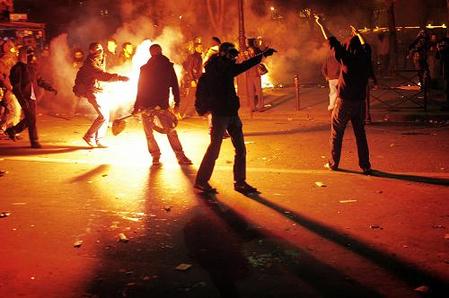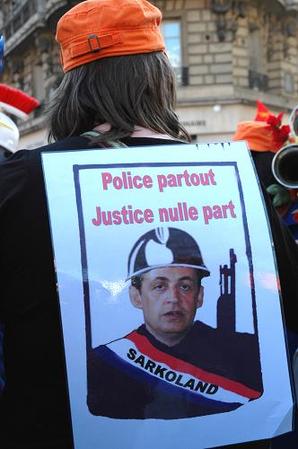France braced for a day of nationwide strikes Thursday and a potentially huge Paris protest aimed at pressing the government to better support workers during the economic crisis.
Paris police laid out two routes through the capital, rather than one, for the expected crowds. Unions called on employees in the public and private sectors to join in the strikes.

Schools, hospitals, the postal service and public transport were among the services expected to be hit. However, Paris transport authorities said they expected buses and Metro lines to be mostly spared, even if suburban trains are not.
Workers with the SNCF train authority began their strike at 8 p.m. (1900 GMT) Wednesday. The SNCF predicts major disruptions for fast trains as well as suburban Paris traffic.
In a rare move, police decided to open a second route to accommodate an overflow crowd during the march from the Place de la Republique to Place de la Nation in eastern Paris.
A strike in late-January put between 1 million and 2.5 million people into French streets. Weeks later, President Nicolas Sarkozy announced measures to help people affected by the financial crisis, including special bonuses for the needy.

Sarkozy told ministers at a Cabinet meeting Wednesday that he "understood the worries of the French," but said he had no plans for additional measures.
Budget Minister Eric Woerth said the measures already announced will increase social expenditures in 2009 by nearly euro10 billion (about US$13 billion).
Some 200 protest marches are planned Thursday around France, according to the powerful CGT union, which has members in various sectors of the economy.